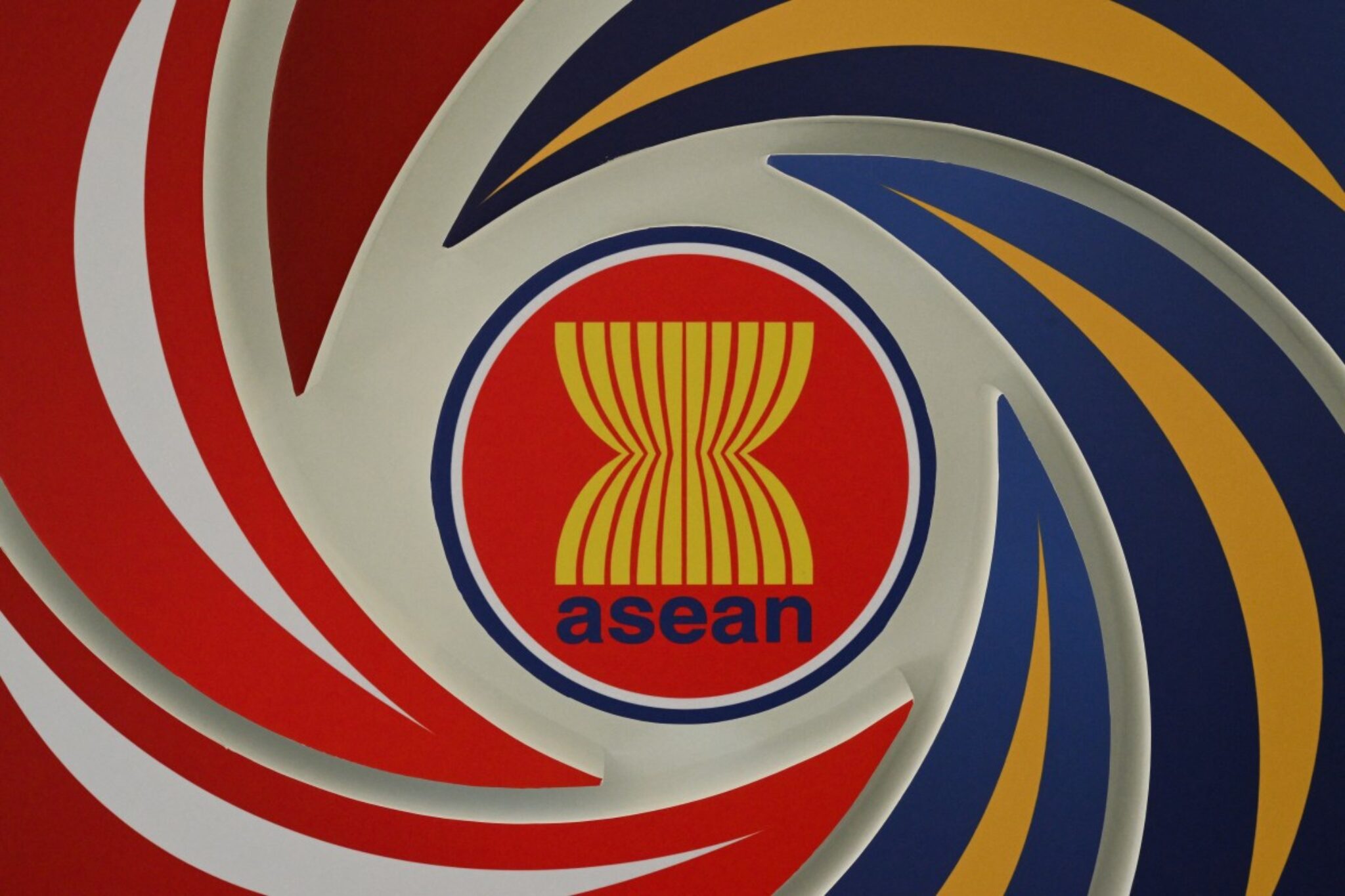Government urged to harness blue economy for national development

The logo of the Association of Southeast Asian Nations (ASEAN). (Photo by MOHD RASFAN / AFP)
Former National Economic and Development Authority (NEDA) Director Cielito Habito has called for a strategic shift in the country’s development agenda, urging policymakers to prioritize the Philippines’ vast marine and water resources to unlock the potential of the blue economy.
Habito emphasized the need for a comprehensive roadmap to harness the nation’s maritime wealth, which he believes is critical to addressing the Philippines’ lagging economic performance among the original ASEAN-5 nations.
“The phrase ‘blue economy’ now appears in the Philippine Development Plan, but we lack a clear blueprint to tap its opportunities,” Habito noted, lamenting the country’s over-reliance on terrestrial resources.
He stressed that the blue economy—encompassing fisheries, maritime transport, coastal tourism, and marine biodiversity—holds immense potential to drive inclusive growth, create jobs, and ensure food security. However, he warned of the “tragedy of the commons” due to the absence of a long-term plan, which risks unsustainable exploitation of marine resources.
Habito underscored the need for robust governance and institutional reforms to support the blue economy. “We must fix governance and institutions, encourage local government and community participation, and move away from top-down approaches,” he said. Citing the Local Government Code, he advocated for stronger coordination among stakeholders to ensure cohesive and sustainable initiatives. “Everyone must work together, communicate, and pursue objectives in unison to avoid conflicts and inefficiencies,” he added.
The maritime transport industry, a cornerstone of the blue economy, also took center stage at the forum. Facilitating over 90% of the country’s trade and supporting millions of jobs, the sector faces significant challenges, including aging fleets, inadequate infrastructure, environmental pressures, and climate change impacts. Ferdinand Inacay, a seasoned transport professional, called for investor-friendly regulatory policies and legislative prioritization of the Maritime Investment Development Plan. “Clustering port operations for privatization, as modeled by the Philippine Ports Authority, could attract investment and modernize smaller ports,” Inacay proposed.
The blue economy’s potential is vast, contributing significantly to the Philippines’ GDP through fisheries, aquaculture, and maritime trade. With 36,289 kilometers of coastline and an exclusive economic zone spanning 2.2 million square kilometers, the country is poised to become a global leader in sustainable marine-based industries. However, legislative support is critical. The Blue Economy Act, alongside bills like the Center for West Philippine Sea Studies and National WPS Day, remains pending in Congress, underscoring the urgency for policymakers to act.
Habito also highlighted the lack of policy continuity across administrations as a barrier to progress. “Programs are often shelved when a new administration takes over. A clear, long-term blueprint for the blue economy can ensure sustained efforts,” he said. He urged lawmakers to fast-track legislation that recognizes the blue economy’s strategic importance and fosters collaboration between national and local governments, private sectors, and communities.
As the Philippines navigates its path to economic recovery and resilience, the blue economy offers a transformative opportunity. By investing in sustainable marine resource management, modernizing maritime infrastructure, and enacting supportive legislation, the country can secure a prosperous future for its people while safeguarding its marine heritage for generations to come.
Subscribe to INQUIRER PLUS to get access to The Philippine Daily Inquirer & other 70+ titles, share up to 5 gadgets, listen to the news, download as early as 4am & share articles on social media. Call 896 6000.







